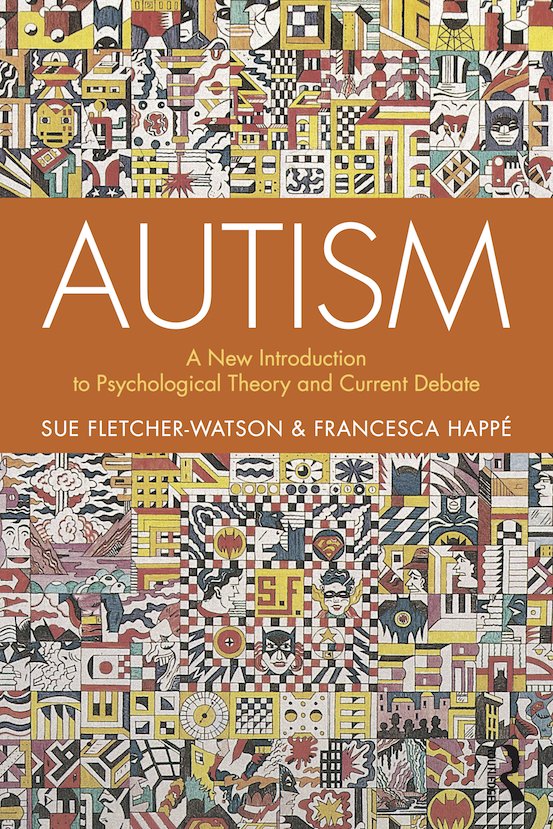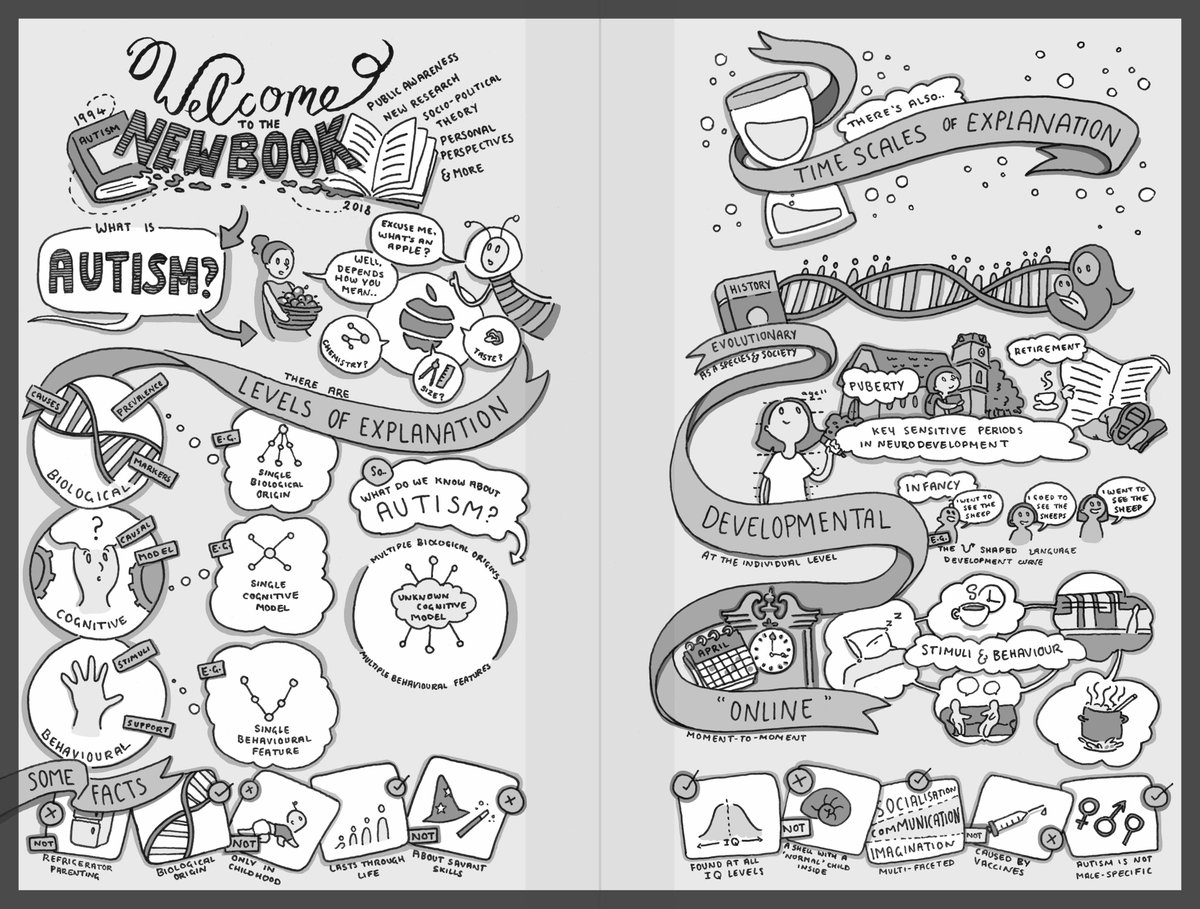
Today is a great day!
The full programme for the It Takes All Kinds Of Minds conference is published and the abstract book is coming out next week...
If you're on the fence about @ITAKOM_CONF this 🧵 of speakers will help you decide whether to register
itakom.org/programme/
The full programme for the It Takes All Kinds Of Minds conference is published and the abstract book is coming out next week...
If you're on the fence about @ITAKOM_CONF this 🧵 of speakers will help you decide whether to register
itakom.org/programme/

We kick off with @bolte_sven on how we capture quality of life in a neurodiversity affirmative way (I can't imagine a better start)
Monday morning includes me & @DrRJChapman on the basics and theory of neurodiversity. In the Routines for Happiness session we have @l_mizen on...
Monday morning includes me & @DrRJChapman on the basics and theory of neurodiversity. In the Routines for Happiness session we have @l_mizen on...
... sleep & intellectual disability with the wonderful @autcareandshare on a day in the life of a carer. At the same time @BoHejlskov discusses why care services sometimes fail supported people, and @DuncanAstle + @neuro_biologia lead a workshop on inclusive education policy...
...last but certainly not least in this section we've got @rorybremner talking about how having ADHD has shaped his life & work
and that brings us up to the morning coffee break!
Monday late morning features the first of four expert panel discussions chaired by @PWCentre..
and that brings us up to the morning coffee break!
Monday late morning features the first of four expert panel discussions chaired by @PWCentre..
...Director of Clinical Research, Andy Stanfield and including Prof Richard Chin from @MMECEdinburgh, @DrERydzewska and @c_mcdonald3 formerly chair of @fragilexuk and parent to @stuandmattmcd - one more panellist tbc...
At the same time we have brand new reports on Attitudes...
At the same time we have brand new reports on Attitudes...
...& Priorities for Neurodiversity Research being shared by @drhollyjoseph @rach_schuck @KathrynAsbury1 and Patrick Dwyer
(proof you don't need to be on twitter to be at the conference!)
They'll cover measuring attitudes to diversity; community priorities for dyslexia...
(proof you don't need to be on twitter to be at the conference!)
They'll cover measuring attitudes to diversity; community priorities for dyslexia...
...research, attitudes to genomic studies of autism, and the implications of neurodiversity for interventions.
In the Creative Careers session we've got @borgskoglund on adhd at work, and anxiety-jewellery designer Charlotte Garnett on "handling it"
Plus the second workshop...
In the Creative Careers session we've got @borgskoglund on adhd at work, and anxiety-jewellery designer Charlotte Garnett on "handling it"
Plus the second workshop...
...this one led by @HeatherLov_e with @GeneticAll_UK on building supportive communities for people with #RareSyndromes like #fragilex #syngap and #WilliamsSyndrome
And you'll have the first chance to see the neurodivergent stories - submit yours here: docs.google.com/document/d/1Nn…
And you'll have the first chance to see the neurodivergent stories - submit yours here: docs.google.com/document/d/1Nn…
Right we're up to lunch time on Monday with a keynote from @HolSmale called The Masks We Wear - it's going to be fantastic.
Monday afternoon kicks off with a pair of talks from neurodiversity legends @WalkerSensei and @UVGKassi both talking about intersectional topics...
Monday afternoon kicks off with a pair of talks from neurodiversity legends @WalkerSensei and @UVGKassi both talking about intersectional topics...
in a session on how we define quality services (and good lives) we'll here from @mencap_charity Engagement Lead @ciarale01 and consultant psychiatrist @McKechanie
@Yu_Lin_Cheng will be speaking on Neurodiversity in Asia: East Meets West, or East Vs West? - fascinating...
@Yu_Lin_Cheng will be speaking on Neurodiversity in Asia: East Meets West, or East Vs West? - fascinating...
And we have @BurnessPaullLLP experts delivering a workshop on neuro-inclusion in employment, while @NancyDoylePsych evaluates where we've been and where we're going in terms of neurodiversity at work
After a second coffee break (and poster chat session - more on those later)...
After a second coffee break (and poster chat session - more on those later)...
...we've got a panel, No Mind Left Behind... at Work - speakers tbc.
You can also go to to a session exploring what we mean by Healthy Brains featuring @drrachelvgow and neurologist Dr David Wiliamson exploring how neurodiversity shapes, and can be shaped by, understanding...
You can also go to to a session exploring what we mean by Healthy Brains featuring @drrachelvgow and neurologist Dr David Wiliamson exploring how neurodiversity shapes, and can be shaped by, understanding...
...brain injury.
More scientific reports in the Perception & Attention session covering auditory processing, speech perception, distraction & focus, and supporting for cognitive skills. These are from @djBeXta @alex_sturrock @Danno_Poole and @alexhendry
Meanwhile...
More scientific reports in the Perception & Attention session covering auditory processing, speech perception, distraction & focus, and supporting for cognitive skills. These are from @djBeXta @alex_sturrock @Danno_Poole and @alexhendry
Meanwhile...
@MindroomInform's youth advisory group are leading a workshop on how to involve young people in research, and there's a second chance to drop in and see some of our neurodivergent stories from real life.
Feeling exhausted? don't worry, the day is about to wrap up with...
Feeling exhausted? don't worry, the day is about to wrap up with...
...a keynote from Pelle Sandstrak, the self-styled Mr Tourette, talking about #TouretteSyndrome and #OCD
Is OCD the "bad guy" of neurodiversity?
Finish the day with a drinks reception and entertainment - tbc but it's exciting I promise!
Is OCD the "bad guy" of neurodiversity?
Finish the day with a drinks reception and entertainment - tbc but it's exciting I promise!
Ok I'm going to end there and do a separate one for Day 2
Remember you don't need to see everything - in fact you can't because most of the time there are 5 things to choose from!
But anything you miss you can watch on catch-up later, everything except the workshops
Remember you don't need to see everything - in fact you can't because most of the time there are 5 things to choose from!
But anything you miss you can watch on catch-up later, everything except the workshops
If this thread has piqued your interest you can register here, and the page includes info about how to request a discounted place (if you're on a low income) or a free bursary:
itakom.org/register/atten…
The whole programme is here: itakom.org/wp-content/upl…
please RT to share!
itakom.org/register/atten…
The whole programme is here: itakom.org/wp-content/upl…
please RT to share!
@threadreaderapp please unroll
here's the start of the second thread, on Day 2:
https://twitter.com/SueReviews/status/1616386283441623040?s=20&t=-6JzWP72lQYBy-IXvvKfaQ
• • •
Missing some Tweet in this thread? You can try to
force a refresh







